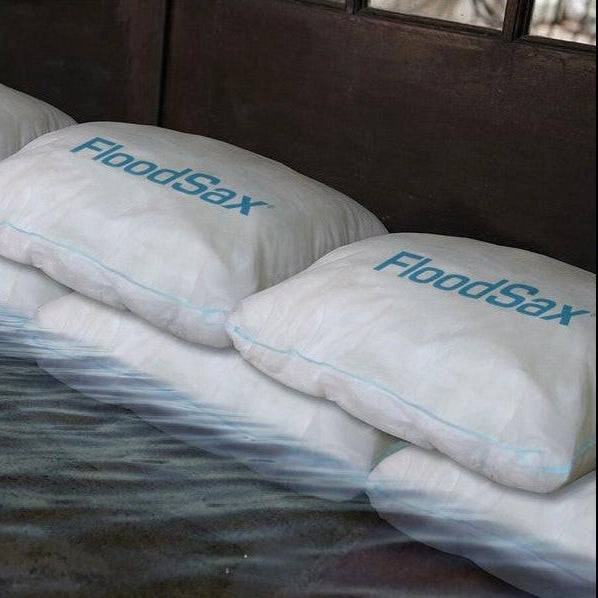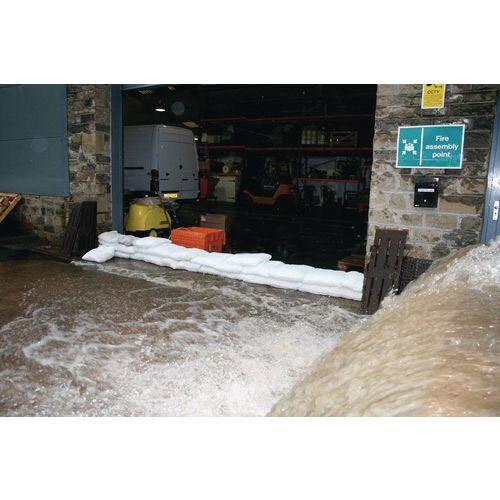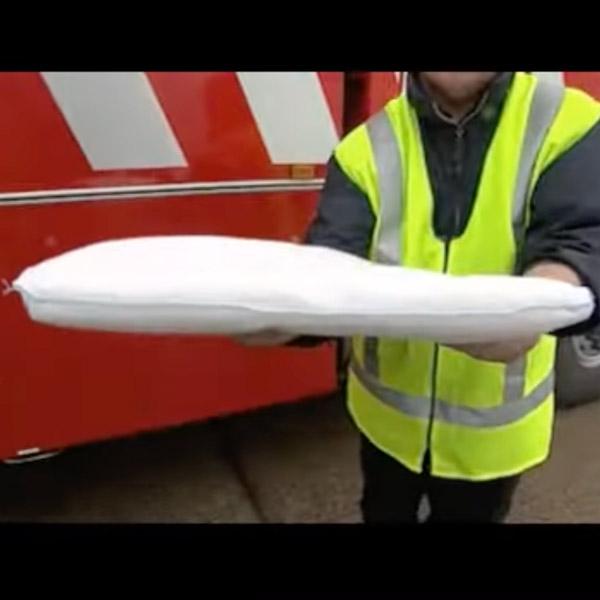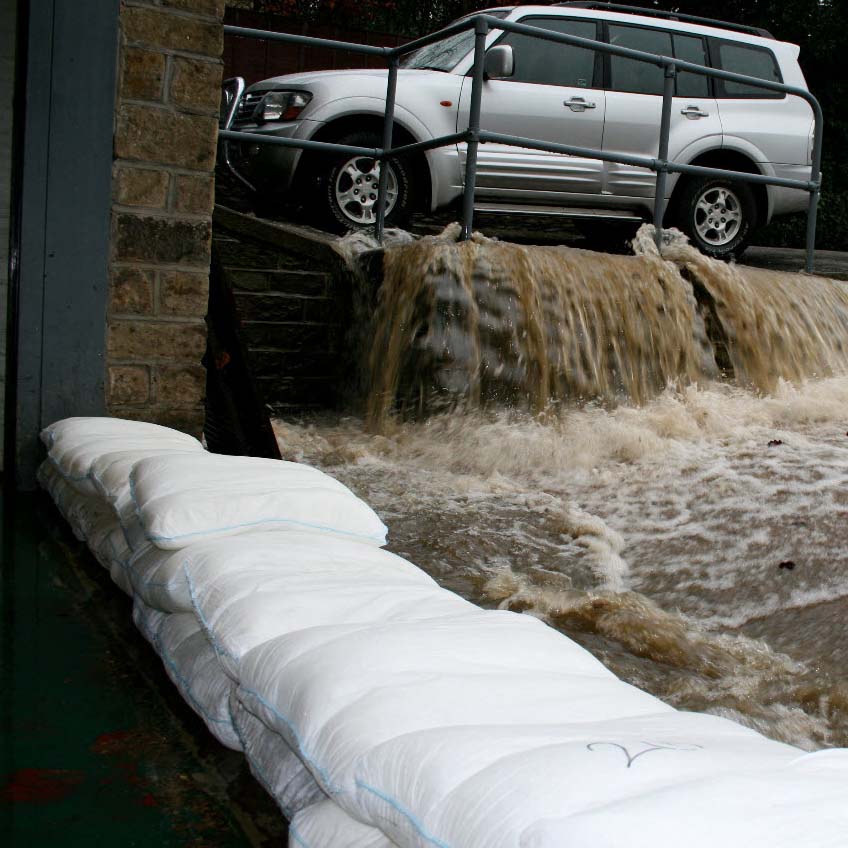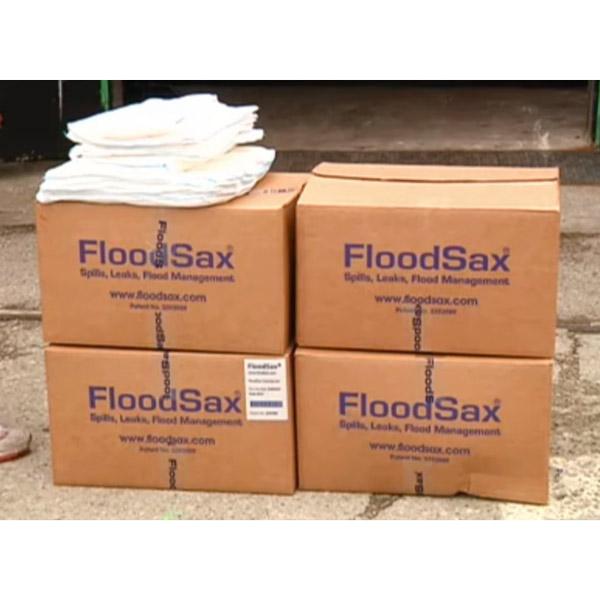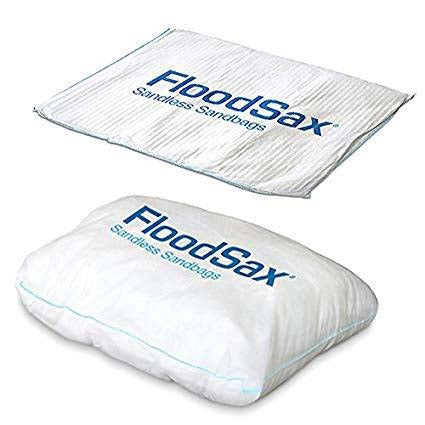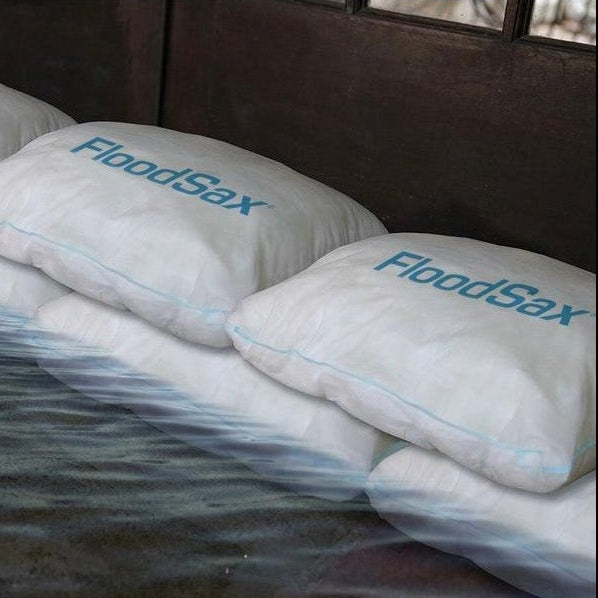FloodSax® Sandbag Alternative - Eco Friendly (x20 bags)
FloodSax® Sandbag Alternative - Eco Friendly (x20 bags) is backordered and will ship as soon as it is back in stock.
Couldn't load pickup availability
Fast Despatch
Products typically despatched within 1-2 working days*
Compliance Training
Products include a certificate. Training provides a certificate upon completion
Flexible Payment
Bank Transfers accepted (Contact Us)
Highest Rated Supplier
We're trusted to deliver. 100's of 5 star reviews on Trustpilot.
-
FloodSax® is a self-absorbing, eco friendly and space-saving alternative sandbag. Designed to help protect your property against water damage. When the water comes into contact with the bag it changes from being as light as a pillowcase (200g/7oz) to as heavy and secure as a sandbag (20kg/44lbs) within minutes
These portable expanding sandless bags can be used in an emergency or to construct a permanent flood defence system. Easy to use and stackable in minutes, FloodSax® will provide peace of mind during flooding. The FloodSax® product absorbs up to 5.8 gallons of liquid in minutes! Once this sandless sandbag product is activated, you can either throw them away or repurpose them. Made with 97% biodegradable materials (all but sack stitching). This allows you to feel confident that your FloodSax® will break down, safely and relatively quickly, by biological means when thrown away or buried.* Another option is to use this product for drought irrigation or water conservation by cutting it open and pouring the contents into the planting soil.
What are they made of?
The FloodSax® nonwoven coverstock is made from polypropylene tissue, the back sheet is polypropylene film and the absorbent medium is wood pulp fluff and superabsorbent polymer (sodium polyacrylate cross-linked).
Are they hazardous?
The coverstock, back sheet and wood pulp is not considered to be hazardous under normal conditions.
What about the super absorbent polymer?
Sodium polyacrylate is not considered an irritant under normal conditions, is not a skin irritant and not a respiratory irritant under normal usage. If ingested it causes irritation of the mouth, throat and digestive tract. If you come into contact with it remove contaminated clothing. If you inhale it and difficulties occur after the dust has been inhaled move to fresh air and seek prompt medical attention. If there is contact with the skin wash with soap and water. If it gets in the eyes wash the affected eyes for at least 15 minutes under running water with eyelids open. If you ingest it rinse the mouth and drink plenty of water. Do not induce vomiting. In case of spontaneous vomiting ensure vomit can drain freely to avoid suffocation.
What about skin contact?
None of the components are considered to be a skin irritant.
What happens if FloodSax® is set on fire?
The coverstock polypropylene will melt at between 165°C and 170°C and decomposition will start at around 300°C with the release of the volatile hydrocarbons. These can be ignited by a flame or a radial heat source. Burning is accompanied by the release of flame molten droplets of polymer which could ignite adjacent flammable material. Carbon monoxide, carbon dioxide, water and carbon (soot) are produced along with low concentrations of oxidation and breakdown products which include formaldehyde and acrolein.
How should FloodSax® be stored?
Simple. Just store at an ambient temperature. They can be stored with other substances without fear of contamination or harm.
What colour are FloodSax®?
FloodSax® are white and easily shows up contaminates.
And their physical and chemical properties?
The coverstock is nonwoven material, back sheet is plastic film, the absorbent medium is fluff mat and the superabsorbent polymer is dry powder. None give off any odour.
Exposure controls and personal protection?
No personal protection equipment is required and spill clean up methods are not applicable. If the FloodSax® have become contaminated then wear gloves and you may want to wear waterproof footwear and overalls.
Stability and Reactivity?
The FloodSax® are stable at ambient temperature.
Toxicological Information
All components have a non toxic reaction under normal conditions.
Ecological Information
No toxicological effect during transportation, storage and normal use.
Waste Disposal
May be disposed of at approved waste disposal sites in accordance with current legislation.
Manual Handling
A fully inflated FloodSax® weighs 20kg. Customers and users should be aware of the potential dangers of handling FloodSax® when fully expanded. Suitable manual handling training should be undertaken and mechanical equipment such as sack trucks or trolleys or even powered equipment should be used to move loads where possible to reduce the risks.
Special Note
This information does not constitute the user’s assessment of workplace risk as may be required by other health and safety legislation.
FloodSax (like ordinary sandbags) should only be used for one flooding incident as they will become contaminated by the filthy floodwater. They are largely biodegradable so can be put in the general waste for landfill. -
Brand: FloodSax
Origin:
United Kingdom
Number of bags in pack: 20 -
Floodsax vs Traditional sandbags: 
How to use Floodsax: 
Payment & Security
Payment methods
Your payment information is processed securely. We do not store credit card details nor have access to your credit card information.

